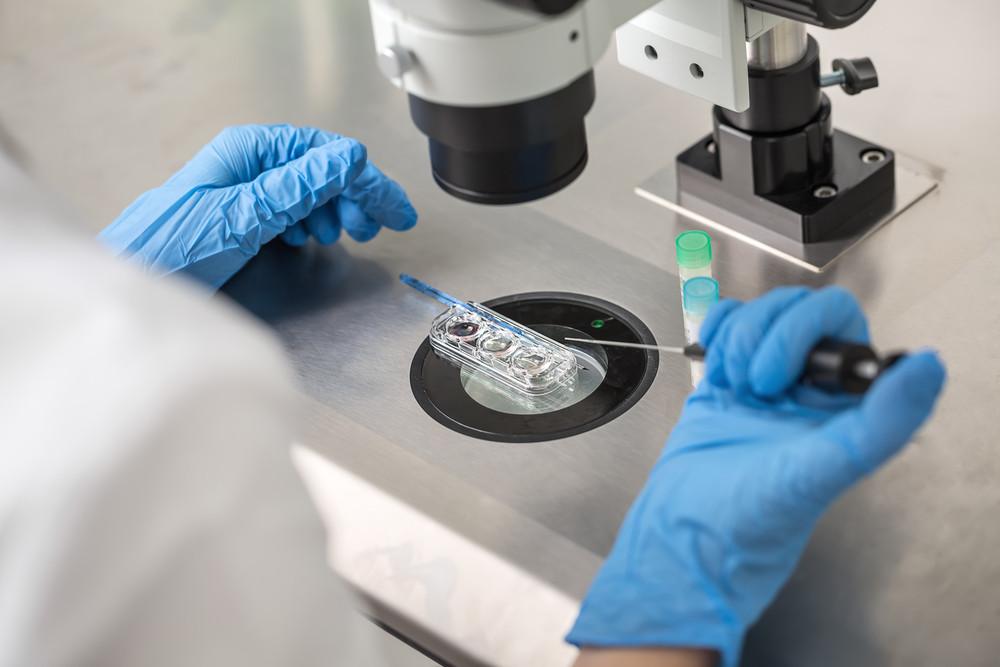Popular Reads
Top Results
Can't find what you're looking for?
View all search resultsPopular Reads
Top Results
Can't find what you're looking for?
View all search resultsNew technique may overcome infertility in childhood cancer survivors
A team led by researchers at the University of Pittsburgh School of Medicine announced they had achieved the milestone, using sperm gathered from a male rhesus macaque to generate embryos that were transferred to recipient females.
Change text size
Gift Premium Articles
to Anyone
Men diagnosed with cancer have the option of freezing their sperm ahead of chemotherapy, which can render them infertile.
But sperm freezing is not an option for prepubescent boys, some 30 percent of whom will become sterile as a result of toxic cancer treatments.
It's a problem that scientists have been working on for years: the idea being to harvest and cryopreserve immature testicular tissue before chemotherapy or radiotherapy treatments, and then graft it back during adolescence so that it will produce fertile sperm at puberty.
Three experiments conducted on monkeys since the 2000s have successfully demonstrated that sperm production, or spermatogenesis, was possible via such auto grafting.
But none had resulted in conception and the birth of a baby, until now.
A team led by researchers at the University of Pittsburgh School of Medicine announced Thursday they had achieved the milestone, using sperm gathered from a male rhesus macaque to generate embryos that were transferred to recipient females.
In April 2018, one of the females gave birth to a healthy baby named Grady -- a portmanteau of "graft-derived" and "baby".
The study, funded by the National Institutes of Health, was published in the journal Science.
The experiment represents a successful proof of concept for the technique and brings it one step closer to reality for human boys affected by cancer. For girls, further research will be required on ovarian tissue grafting.
In Pittsburgh, 206 boys and 41 girls treated for cancer have had their tissue frozen since 2011 in the hope that the technique will one day become available, said the study's senior author, Kyle Orwig, a professor of obstetrics, gynecology and reproductive sciences at the University of Pittsburgh.
"I believe we will have this technology in the clinic in the next two to five years," he continued, adding that discussions were already underway with regulators.
Read also: Cancer survivor paints for pain relief
Methodology
Over the course of reporting the story, AFP came across differences in stated methodologies, which the editors of Science have said they are evaluating in case a correction may be required.
All five macaques that were a part of the experiment underwent chemotherapy but the treatment did not result in them becoming infertile, said Orwig.
Their sterility at the time of the experiment instead came about as a result of castration, standard procedure for studies of this kind, according to the authors.
But while the chemotherapy treatment was not mentioned in the study published by Science, it was highlighted in interviews and a video produced by the university, which could create the impression that the primates became infertile because of the anti-cancer treatment.
Orwig put the discrepancy down to human error. "I had forgotten that we decided not to mention the chemo in the paper because we thought it was irrelevant to the experimental plan and had no bearing on the outcome," he said.
Stefan Schlatt, a professor at the Center of Reproductive Medicine and Andrology, in Munster, Germany, who wrote an editorial on the study for Science, concurred with Orwig.
"It is indeed irrelevant," he said, because the purpose of the test was to show that the testis could grow ectopically, which it did.
"However it would have been more honest and scientifically correct to mention all treatments in the manuscript," he added.
In a comment to AFP, Science said its editors were not aware of the chemotherapy experiment, while adding that it was usual for experimental design to evolve.
"An author makes a judgment as to which elements are needed to provide clarity and transparency with regard to the methods used to produce the results and conclusions," it continued, adding that it would evaluate whether a correction was required.











